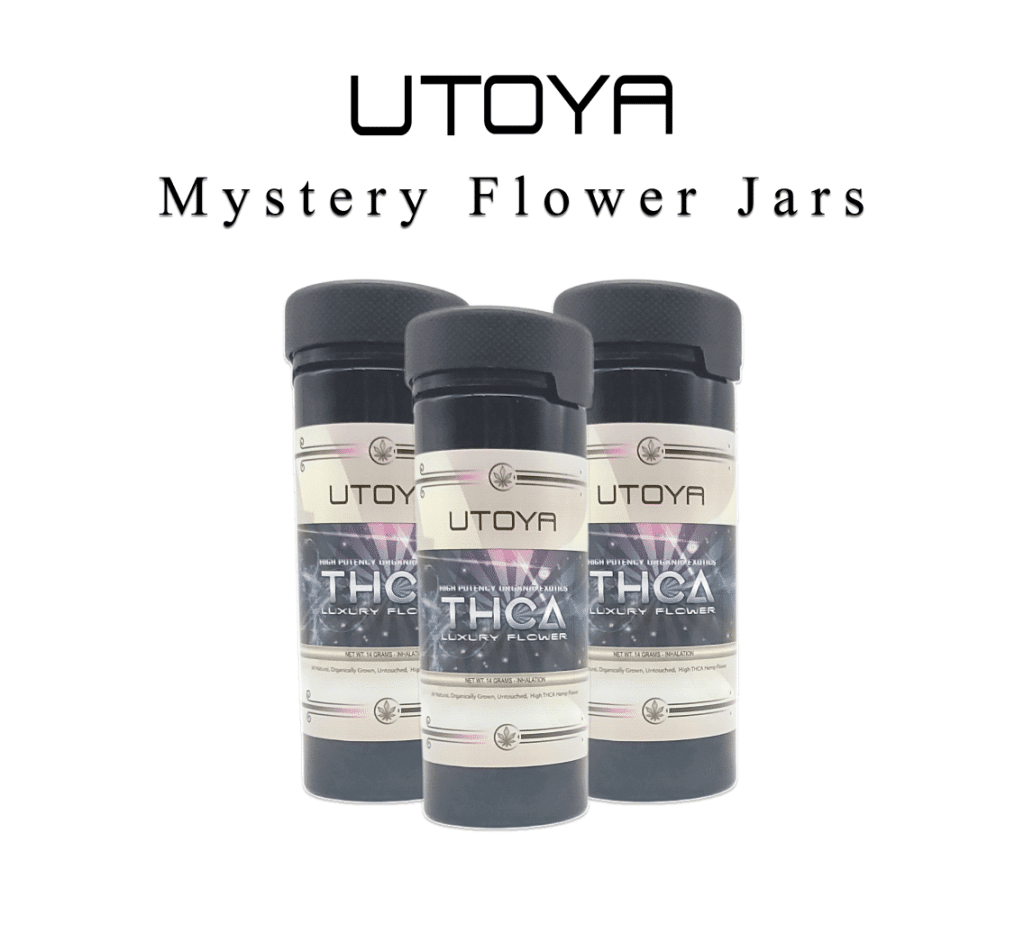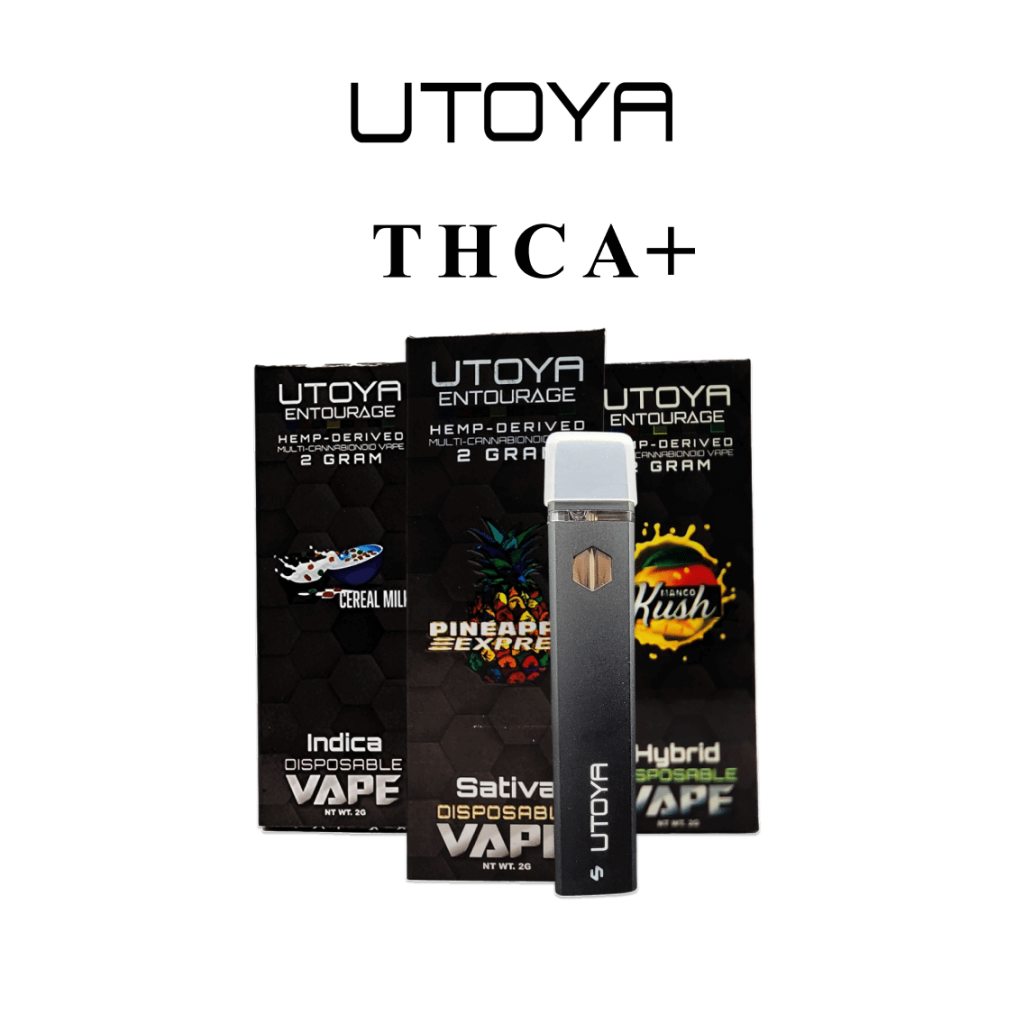Is High THCA Flower Safe for Daily Use?
If you’ve encountered high THCA flower and found yourself asking, “Is it safe for daily use?”, you’re not alone. At Utoya Organics, we prioritize clarity and responsibility in cannabis education. At the core of it is the quality of sourcing, the diligence of safety testing, and the uniqueness of your health profile. All of these will decide if high-THCA Flower is for your daily use.
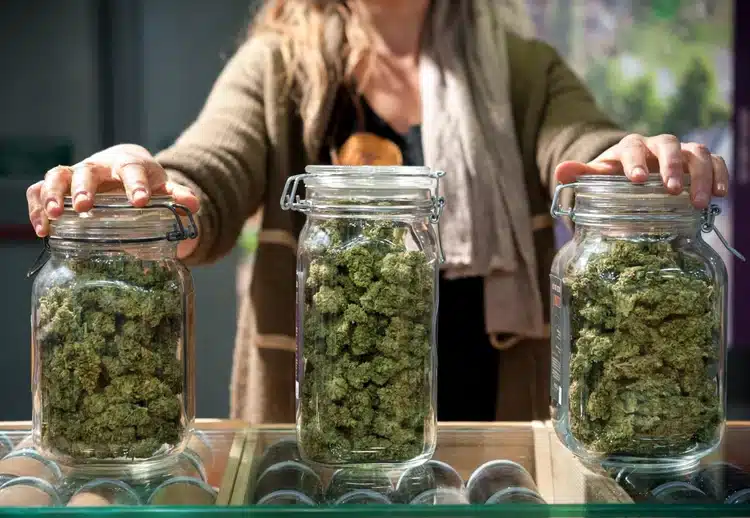
What Is High-THCA Flower?
High THCA flower is any cannabis flower with a significant amount of tetrahydrocannabinoic acid (THCA). This compound, found naturally in the body, becomes psychoactive THC when it’s heated — a process known as decarboxylation. Unlike Delta 9 THC, which gets you intoxicated 40% from smoking flowers, high-THCA Flower smokes or vapes with little to no psychoactivity when unheated. Many users appreciate this duality: enjoy the plant’s richness raw and activate gentle effects when desired.
The Legal Landscape of High-THCA Flower
Under federal law, by the 2018 Farm Bill above, it is legal to possess hemp-derived cannabinoids, such as THCA, if the Delta‑9 THC concentration does not exceed 0.3%. This makes high-THCA Flower produced by compliant hemp plants legal, but in many cases, it is not 100% legal under state law. The local regulations for each state can be more distinct, particularly in terms of psychoactive potential.
What does this mean for you? Purchasing high-THCA flower requires awareness of your state’s specific stance. Legal access can be relatively easy if you live in a regulated market. Even without the mind-altering effects included, THCA products might still gain unwanted attention in conservative regions.
Safety Factors for High-THCA Flower
Several dimensions determine whether high-THCA flower is safe for daily use:
Quality and Testing
Look for a premium high-THCA flower product that includes third‑party lab reports for cannabinoid content, pesticides, heavy metals, and microbial contaminants. Without this, you risk exposure to unsafe compounds.
Decarboxylation Risk
Raw high-THCA flower isn’t psychoactive. When heated (by smoking, vaping, or baking), it becomes THC. Daily accidental dosing could make this thing a regularly psychoactive endeavor, something to keep in mind.
Individual Health Considerations
Sensitivities to cannabinoids can vary from one person to another. Other things like pre‑existing conditions, other medications, mental health, and cardiovascular health are all likely to have a bearing on how you react to that conversion, or repeated exposure, to THC.
Consumption Habits
Regular use could cause some level of tolerance (you start needing more to get high), which means increased usage and the possibility of dependence. Even THC-converted effects can lead to long-term changes in mood, cognition, and emotional equilibrium.
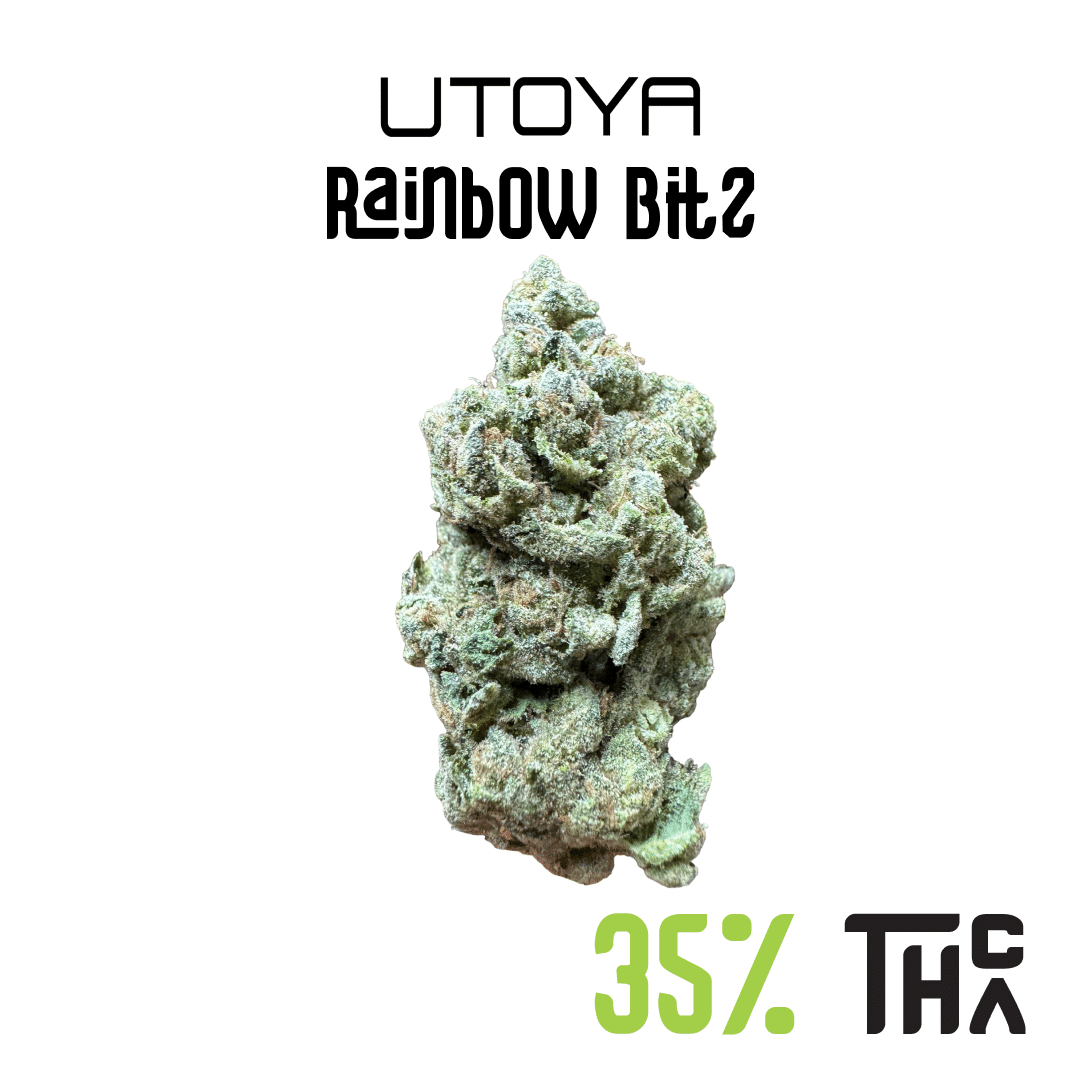
Possible Risks of High THCA Flower
Psychoactive Effects When Heated
The flower, with its high THCA, is psychoactive THC when heated. Users can expect to become potentially intoxicated — seeing things differently, stabilized shifts, or nervousness — if dosing isn’t managed properly. To alleviate, drink in a safe, relaxing environment with a qualified person present if possible.
Impairment Potential
Activated high-THCA flower may impair coordination, slow reaction time, and affect judgment. Daily routines—driving, operating machinery, or attention‑reliant tasks—should be avoided post‑use.
Tolerance and Dependence
Regular users of activated high-THCA Flower may develop tolerance to effects, increasing the needed amount of the product to achieve the same effects. That could make side effects worse and complicate any eventual taper if it is necessary. Though not as harmful as other drugs, it’s still best to be careful.
Legal Implications
Though high-THCA flower may seem legal federally, it can become regulated once decarboxylated. In some jurisdictions, possession of an activated product can pose legal risk. Check local statutes frequently.
Medication Interactions
Any medication metabolized by the liver may be impacted when combined with cannabinoids (THCA is included here). Make sure your health care provider knows if you use any cannabis products.
Product Purity Concerns
Unregulated products could, for example, contain mold or pesticides, or heavy metals. Make sure to always be buying high-THCA Flower that’s been thoroughly tested and clearly labeled!
Who Should Avoid High THCA Flower?
Individuals with heart conditions or hypertension: THC can elevate heart rate and blood pressure.
Pregnant or breastfeeding individuals: Cannabinoids pass into breastmilk and the developing fetus.
Those with mental health history: Anxiety, depression, or psychosis may be exacerbated by THC exposure.
Anyone on interacting medications: Especially blood thinners, anticonvulsants, or antidepressants.
Minors: THC should be avoided by those under 25, as neurodevelopment continues into the mid‑20s.
If you have any of these issues, the decision to try high-THCA Flower—even raw—should be made by consulting a medical professional.
How to Use High-THCA Flower Safely Every Day
1. Stick to Raw Use if Psychoactivity Isn’t Desired
Consume raw flower in juices, smoothies, or as tincture bases. This enables daily THCA intake without conversion into THC.
2. Start Small When Activating
If you choose to heat high THCA Flower, begin with minimal doses—just enough to understand your tolerance. Micro‑dosing is safer and more economical.
3. Choose Verified, Tested Products
Utoya sources our high-THCA flower from hemp grown to pharmaceutical-grade standards. Every batch is lab-tested and traceable for contaminants.
4. Track Tolerance and Frequency
Use a journal or app to note dosage, effects, and dates. This helps you see trends in tolerance and adjust accordingly.
5. Cycle Use
Periodic days off or breaks from use can help reset your system and moderate tolerance.
6. Consult a Trusted Healthcare Provider
Especially if you are on other medications or have other conditions.
Utoya’s High THCA Flower: Commitment to Quality
At Utoya, we understand the therapeutic potential of high-THCA flower and the importance of doing it safely. We use:
Independent lab testing for every batch
Full-print Certificates of Analysis (COAs) are available to all customers
Hemp from regulated, experienced growers
Detailed usage guidance based on the latest science
We believe transparent sourcing plus full lab certification support safe daily use of high-THCA flower.
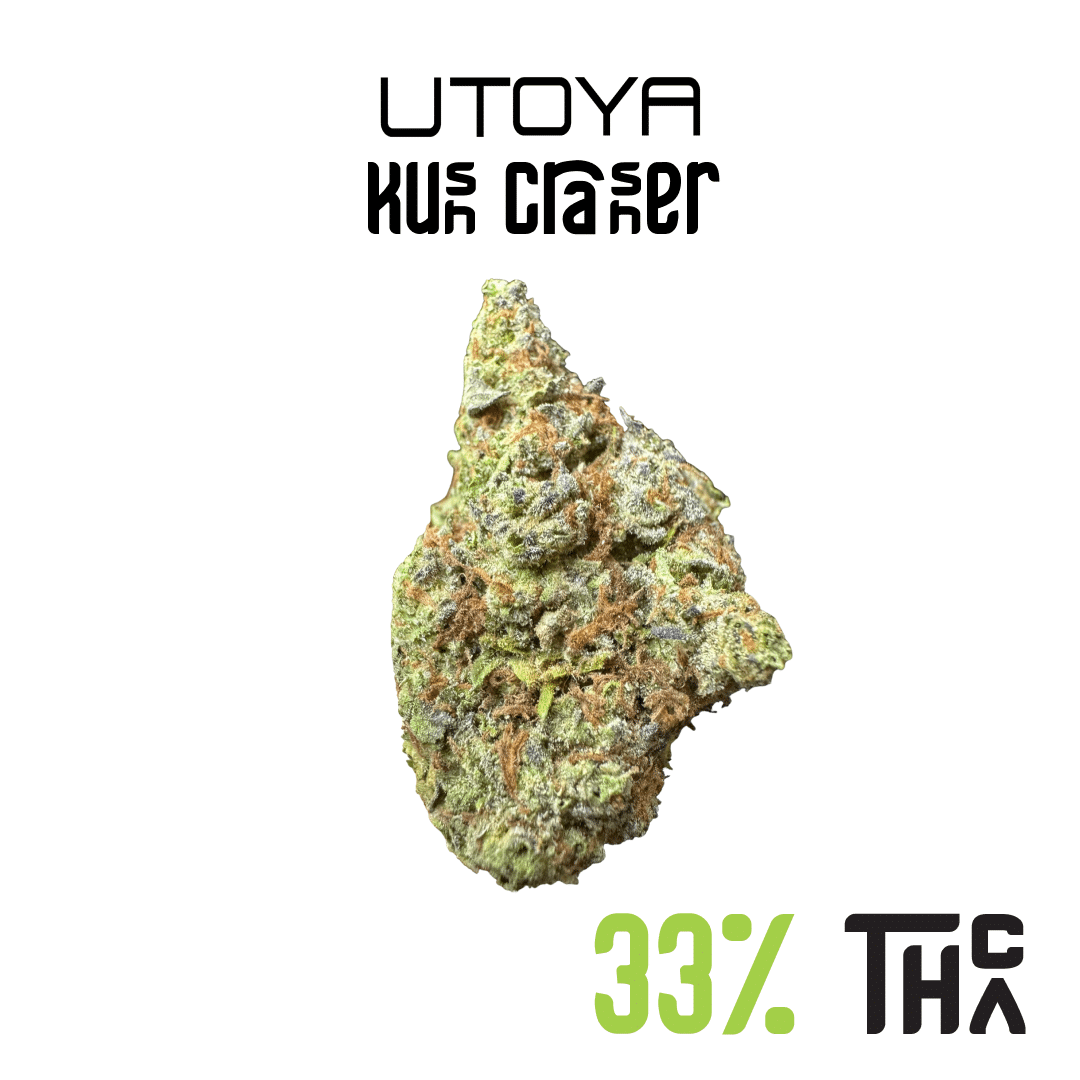
Frequently Asked Questions (FAQs)
Can consuming high-THCA flower raw trigger a positive drug test?
Yes. Even unheated, high-THCA flower may register as THC metabolites in your system. The likelihood of a positive drug test increases if it’s heated and converted to THC.
What are the common side effects once high-THCA flower is heated?
The negative side effects of marijuana use include dry mouth, red eyes, faster heart rate, lack of body coordination, memory lapse, anxiety, or paranoia. These are also dose-related and will vary with the sensitivity of the person.
Does High THCA Flower interact with medications?
THC can also interfere with medications that are metabolized by cytochrome P450 enzymes. There is more “play” between blood thinners, antiseizure medications, and antidepressants. If you’re not sure, ask a pharmacist or a doctor.
How do I know a product is safe?
Find third‑party lab reports that certify a cannabinoid’s potency and purity while detailing how it’s cultivated. Steer clear of products with no documentation or transparency.
Final Take
High-THCA flower can serve as a safe addition to a healthy wellness routine – if you’re selecting from lab‑tested products, knowledgeable about the science of decarboxylation, and considering your own body’s limitations. At Utoya Organics, we value giving users the knowledge they need to make informed decisions that weigh benefits as well as risks. Discriminate use, along with credible sourcing and personal attention, however, suggests that high-THCA flower can be a responsible part of many wellness regimens.
If you want to learn more about high-THCA flower, give us a call at 813-697-4747 or check out some of our other products. We’re here to help you make informed choices that put your health and safety first.


